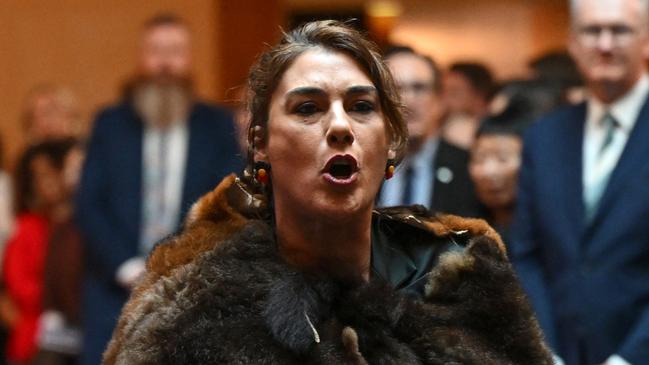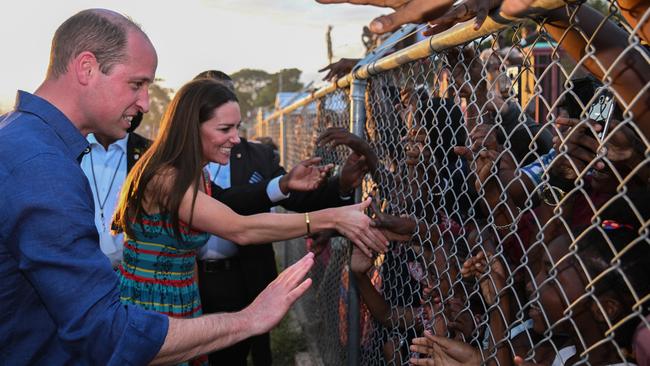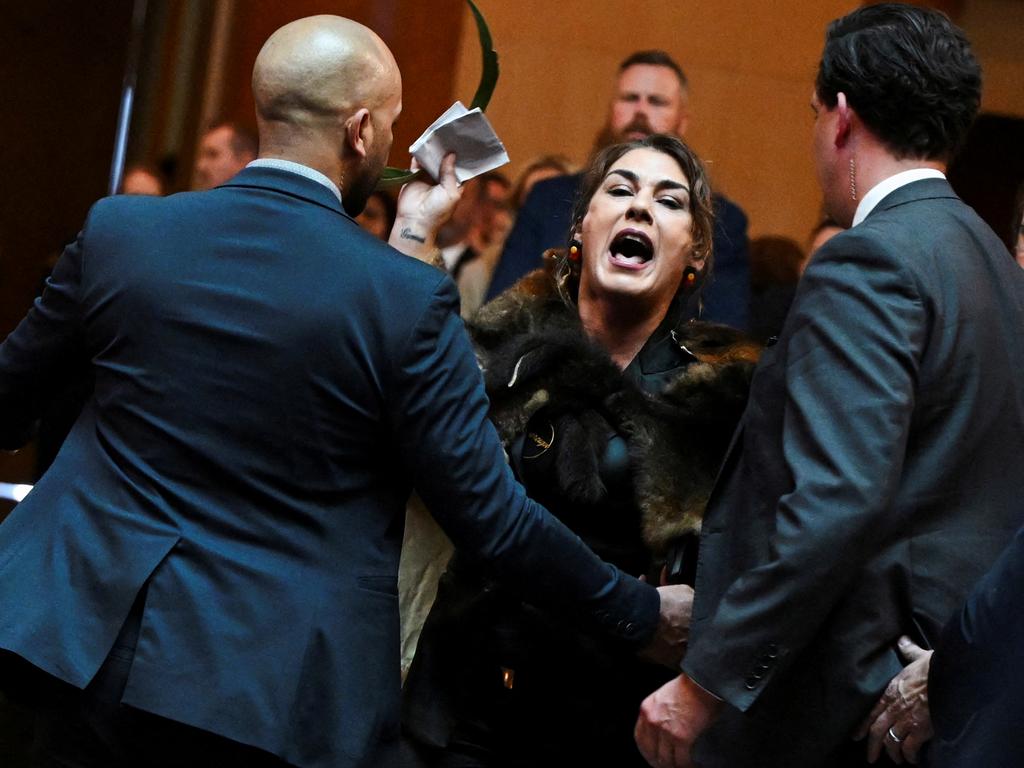
The challenge to King Charles from that proud Gunnai, Gunditjmara and Djab Wurrung woman was many things. For some, it was rude. Shameful. Pathetic and puerile. For others it was electrifying. Passionate. Courageous and much-needed. No one can deny that for a brief moment, Thorpe owned the internet. There was poetry in the meter of the words and heartbreak in the accusation as she spoke about the body parts of ancestors taken by the British. “You are not our king. You are not our sovereign. You committed genocide against our people. Give us our land back. Give us what you stole from us. Our bones. Our skulls. Our babies. Our people. You destroyed our land. Give us a treaty.”
For unlike many former British colonies, Australia doesn’t have a treaty with its First Nations people. Many of our Welcome to Countries acknowledge that sovereignty and land were never ceded, and Thorpe succinctly summarised a deep, deep anguish: that when the British arrived the world changed irrevocably for Australia’s blameless original inhabitants. Disquiet over this injustice is seamed deep within our nation’s psyche.
And so we arrived at this moment. In our cathedral of power, no less, and during a royal tour of hegemonic glorification that had been minutely choreographed for months. But then a democratically elected politician went off-piste and spoke out to a man who’d never been elected to represent us, bringing international focus to indigenous dispossession.
Ironically, Charles often makes a point of his awareness of past wrongs. “I’ve witnessed the courage and hope that have guided the nation’s long and sometimes difficult journey towards reconciliation,” he’d said, graciously, just before Thorpe’s interjection.
But his Queen appeared to laugh during Thorpe’s emotional words – not a great look for grievous Indigenous pain, and coming hot on the heels of a walk-by in Sydney where Camilla appeared to ignore the people she was shaking hands with. The optics were odd; the footage shared around the world.
Royal tours are getting trickier. William and Kate came of age in a different era to Charles and are even more aware of missteps as younger, more questioning generations come up strong. They were stung by a global outcry after their disastrous Caribbean tour in 2022, when they rode on a jeep like some throwback to the 1950s and were photographed with “subjects” reaching through a wire fence like caged beings.

In an increasingly aware world that’s less afraid to push back, Australia is now a little more unpredictable for the royals. Thorpe’s actions were condemned by various indigenous leaders as well as both sides of politics, but I suspect the Palace will be worried about future tours. Questions over colonisation are only going to become more urgent.
The torturous history of Australia and the Crown is marked by this moment in history. Not a focus the Palace wanted for this tour. There was a predictably vicious backlash to Thorpe, as there had been for Gillard in 2012. The fallout for both was a condemnation of outspoken women not knowing their place. For when females speak out – speak their truths – they’re punished. But history plays a long game.








Love it or hate it – infuriated or exhilarated by it – it was a cultural moment in our nation’s history. Two Australian speeches have resonated globally in recent times, both by women: Julia Gillard’s misogyny speech, and Lidia Thorpe’s colonisation tirade. Gillard’s off-the-cuff words have reverberated years down the track and are now the focus of an Australian smash hit in our theatres – Joanna Murray-Smith’s Julia. And Thorpe’s words are headed for the history books, too, like it or not.